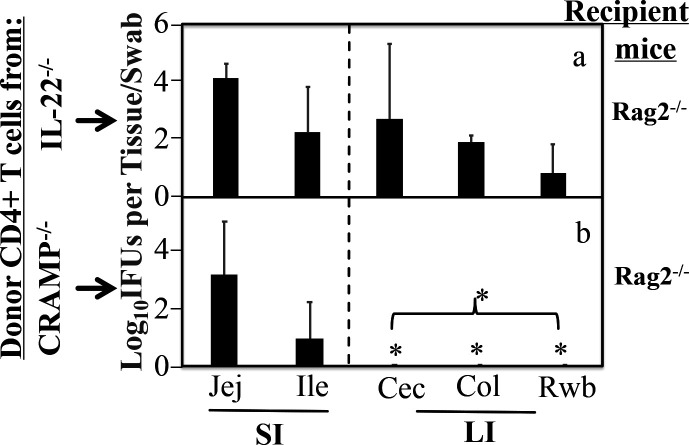Fig 5.
CRAMP-deficient CD4+ T cells can still inhibit the spreading of Pgp3-deficient C. muridarum from the small intestine into the large intestine in Rag2−/−-recipient mice. Rag2−/−-recipient mice were adoptively transferred with 1 × 106 donor CD4+ T cells purified from IL-22−/− (panel a, # of recipient mice or n = 4) or CRAMP−/− mice (panel b, n = 4). The transfer was carried out retro-orbitally twice 3 days before and 1 day after infection, respectively. Mice were infected via intrajejunal inoculation with 1 × 105 IFUs of CMpGP3S. Three days after the inoculation, rectal swabs (Rwb) were collected, and mice were sacrificed to collect small intestine (SI) tissues [jejunum (Jej) and ileum (Ile)] and large intestine (LI) tissues [cecum (Cec) and Colon (Col)] as listed along the X-axis. Live CMpGP3S organisms were recovered from each tissue sample and expressed as log10 IFUs per tissue or swab. The data came from two independent experiments. Note that Rag2−/− mice were rescued to block the spreading of CMpGP3S into the large intestine by CRAMP−/− but not IL-22−/− donor CD4+ T cells. * denotes an observed P-value <0.05 based on a Wilcoxon rank-sum test, comparing the live chlamydial organisms in the Cec, Col, and Rwb as well as overall large intestinal tissues between Rag2−/− mice receiving CRAMP−/− and IL-22−/− donor CD4+ T cells.

